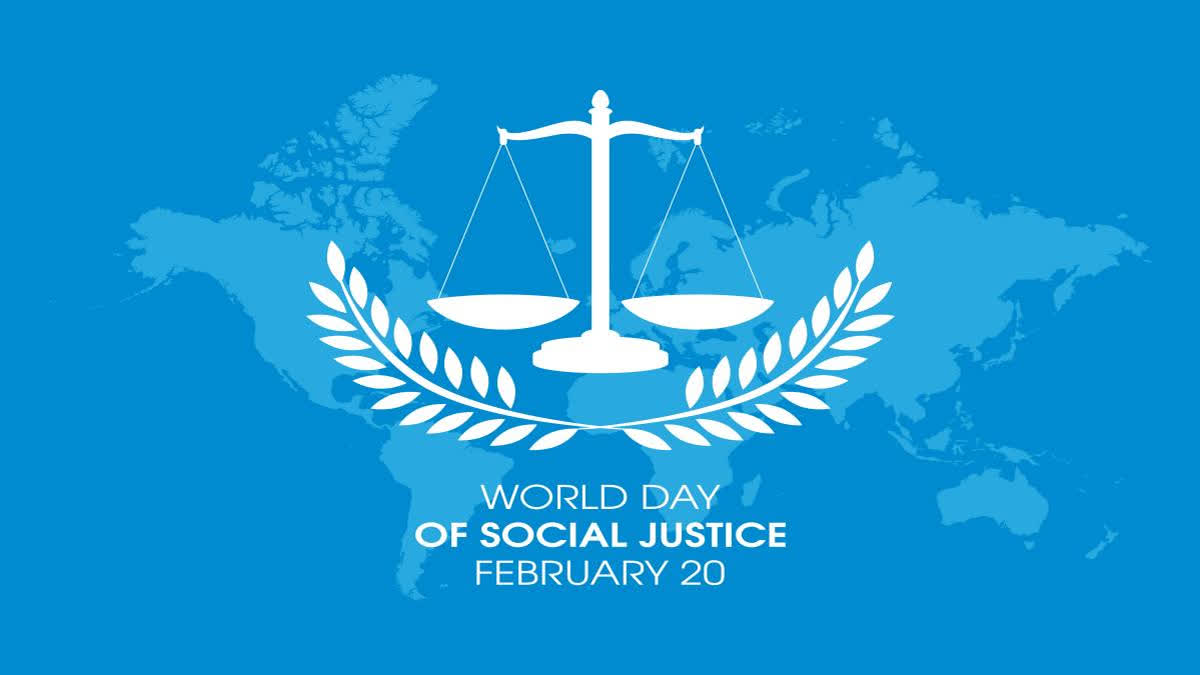Hyderabad: The World Day of Social Justice is observed every year on February 20 with an aim to spotlight and eliminate barriers related to gender, racial, ethnic, and religious discrimination. This day not only draws attention to global social injustices but also offers solutions and improvements. It emphasises the urgent need to address challenges such as poverty, employment, gender equality, and justice for all.
Understanding Social Justice: The term "social justice" has become integral to constitutions worldwide, encompassing social, economic, and political dimensions. In the context of the Preamble, justice is secured through Fundamental Rights and Directive Principles. Social justice advocates for equal treatment without social distinctions based on caste, colour, race, religion, or gender. Four principles guide social justice efforts: Equity, Access, Participation, and Human Rights.
History Behind the Day: The International Labour Organisation (ILO) played a pivotal role by adopting the ILO Declaration on Social Justice for a Fair Globalisation on 10 June 2008. This declaration, building on the Philadelphia Declaration of 1944 and the Declaration on Fundamental Principles and Rights at Work of 1998, articulates the ILO's contemporary vision amid globalisation. Recognising the importance of social justice, the General Assembly declared 20 February as the World Day of Social Justice starting from the 63rd session in 2007.
Theme 2024 - The theme for this year's World Day of Social Justice is Global Coalition for Social Justice: Bridging Gaps, Building Alliances.
Social Justice and the Indian Constitution: India's constitution, ratified on November 26, 1949, emphasises social, economic, and political justice, along with fundamental rights such as freedom of speech, religion, and equality of opportunity. While the constitution doesn't explicitly mention social justice, it embodies the objective of achieving it. The Indian Constitution stands out with salient features borrowed from various constitutions worldwide, aiming to provide justice to all citizens.
Objectives of the Indian Constitution: The Indian Constitution, effective from January 26, 1950,pledges to provide social, economic, and political justice. It guarantees freedom, equality, and fraternity among citizens to uphold individual dignity and national unity. Although social justice isn't explicitly stated, it remains a fundamental objective.
Importance of the World Day of Social Justice:
Creating a Fair World- Social justice is pivotal in establishing a fair world for everyone. It ensures equal opportunities and treatment, fostering a society where individuals can thrive without facing discrimination.
Dignified Living- Access to education, healthcare, shelter, and employment empowers individuals to lead dignified lives, reducing dependency on others. Social justice promotes a society where everyone can live with respect and autonomy.
Raising Awareness- The World Day of Social Justice serves as a platform to raise awareness about prevalent global issues that often go unnoticed. It encourages dialogue and collective action to address these challenges.
Global Efforts for Well-being- This day provides an opportunity to unite global efforts to eradicate poverty, promote fair and decent work, achieve gender parity, and enhance social justice and well-being for all. It emphasises the interconnectedness of these goals in creating a better world.



